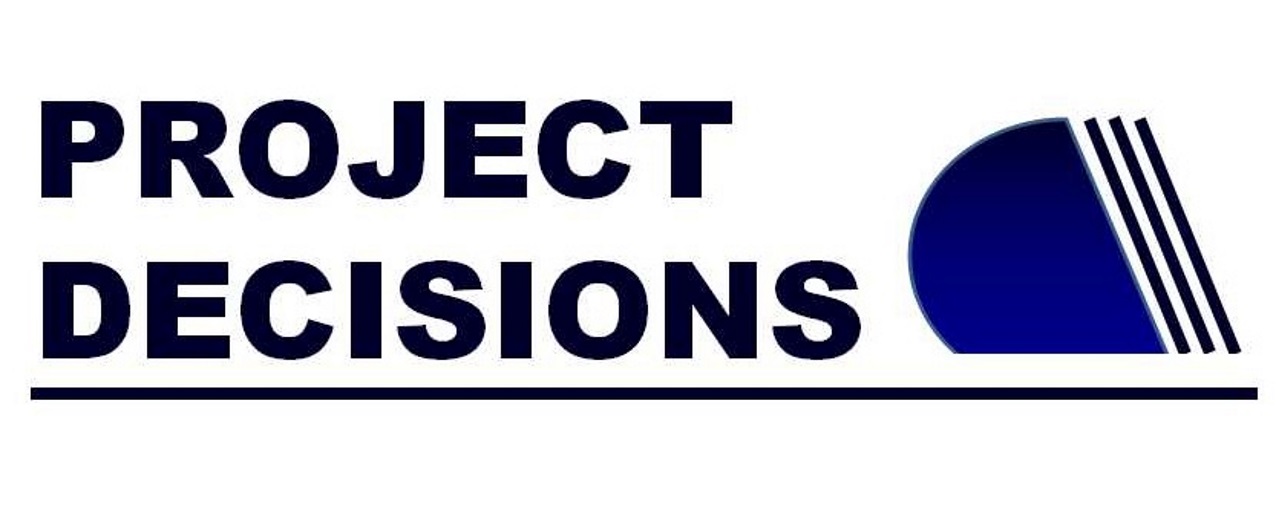Project Decision Analysis
Project Decision Analysis is a systematic process to support decision making in project-based organization. It is a critical component of successful project management. Project decision analysis uses a number of format methods and techniques including judgement elicitation, decision tree analysis, quantitative analysis of project schedules, sensitivity analysis, and others. Project decision analysis includes multiple phases: decision framing, modeling the situation, quantitative analysis, and implementation, monitoring, and review of the decision. Project risk management and project risk analysis overlaps with project decision analysis. Results of project risk management and risk analysis help with making project decisions. The examples of project decisions include proper defining of project scope, budgeting, choosing resources and suppliers, and many others. Project decision analysis processes are based on both psychology of judgement and decision making and mathematics and statistics. In this web site we offer three books on project decision analysis, risk analysis and risk management. You can also find white papers and other information about project decision analysis.
Paperback: 320 pages
Publisher: Berrett-Koehler Publishers (November 5, 2019)
Language: English
ISBN-10: 1523085444
ISBN-13: 978-1523085446
Project Decisions: The Art and Science, Second Edition
Introduction to Project Risk Management and Decision Analysis
by Lev Virine and Michael Trumper
Project management is the art of making the right decisions. To be effective as a project manager, you must know how to make rational choices in project management, what processes can help you improve these choices, and what tools are available to guide you through the decision-making process. Book Project Decisions: The Art and Science is an entertaining and easy-to-read guide to a structured project decision analysis process. This valuable text presents the basics of cognitive psychology and quantitative analysis to help project managers make better decisions. Examples that portray different projects, real-life stories, and popular culture will help readers acquire the essential knowledge and skills required for effective project decision-making.
Learn how to:
- Understand psychological pitfalls related to project management
- Establish a creative business environment in your organization
- Identify project risks and uncertainties
- Develop estimates of project time and cost based on an understanding of human psychology
- Perform basic quantitative and qualitative risk and decision analysis
- Use event chain methodology in managing your projects
- Communicate the results of decision analysis to decision-makers
- Review project decisions and perform adaptive project management
- Establish a project decision analysis process in your organization
PLUS — Test your own judgment through a quiz that examines your intuition!
Hardcover: 252 pages
Publisher: Routledge; 1 edition (September 12, 2013)
Language: English
ISBN-10: 1409454983
ISBN-13: 978-1409454984
ProjectThink
Why Good Managers Make Poor Project Choices
be Lev Virine and Michael Trumper
Projects are constantly beset by problems, often caused by seemingly small mistakes which collectively lead to larger issues.
- Why do project managers and teams appear to repeat the same mistakes?
- Can they make better choices without introducing complex decision analysis processes?
- How can they make better estimates?
Project management is the art and science of human interactions. ProjectThink identifies and explains the paths of those intentional and unintentional actions that lead to trouble. The book explains basic concepts of psychology of judgement and decision making and its application to project management. ProjectThink provides advice and guidance in analyzing information and risk and explains how ‘Choice Engineering’ can facilitate decision-making and encourage everyone involved in a project to follow the right procedures and work collaboratively.
The book received Project Management Institute (PMI) David Cleland award for best project management book in 2014.
Hardcover: 284 pages
Publisher: World Scientific Publishing Co (March 5, 2017)
Language: English
ISBN-10: 9814759376
ISBN-13: 978-9814759373
Project Risk Analysis Made Ridiculously Simple
A Step by Step Guide to Project Risk Analysis
by Lev Virine and Michael Trumper
Project management is the art of analyzing and managing risks. Without risk, there is little need for project management. Project Risk Analysis Made Ridiculously Simple offers a step-by-step guide on how to perform project risk analysis and risk management for a wide range of readers: students, project schedulers not exposed to project risk analysis before, and to project risk experts. With this book, you will learn how to:
- Identify and manage risks over the course of a project
- Perform qualitative and quantitative risk analysis
- Perform project risk analysis using Monte Carlo simulations
- Use event chain methodology to improve project risk analysis
Perform risk analysis of project portfolios. Easily recognizable real-life stories and projects provide a compelling narrative while imparting valuable information on both the theory and practice of project risk management. You will not only understand why project risk management is important to the success of their projects, but you will also know how it can be implemented in your organization and the appropriate tools to use. Readership: Anyone interested in the theories and practical overview of project risk management, as a subject of study and for practical applications.




